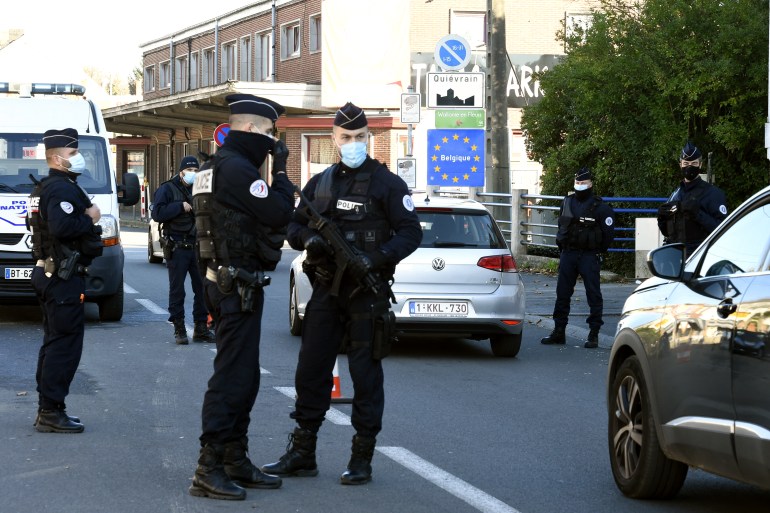Paris, France – Journalists and activists have raised concerns over a new bill by the French government, aimed at ushering in the so-called “global security” law, saying civil liberties and press freedom could ultimately be compromised.

Under the law, tabled by members of Parliament from President Emmanuel Macron’s governing La République En Marche (LREM) party, sharing images of on-duty police “with the aim or harming their physical or psychological integrity” will be punishable with up to a year in prison and a maximum 45,000-euro ($53,360) fine. Keep Reading
Other proposed measures include allowing police to use camera-equipped drones and easier access to CCTV footage.
The aim of the bill, which is being debated in the National Assembly this week, is to “protect those who protect us”, according to Gérald Darmanin, the interior minister, in reference to recent attacks on French police; last month for instance about 40 people tried to storm a police station in the Parisian suburb of Champigny-sur-Marne.
But a broad coalition of critics in France has warned the measures could undermine the freedom of the press, the public’s right to be informed, and growing efforts to stamp out police-led violence.
In January, for example, witness video was used as key evidence in the case of Cédric Chouviat, a 42-year-old delivery driver of Algerian origin who died in January after officers continued pinning him to the ground despite saying “I’m suffocating” seven times; three officers were later charged with manslaughter.
Thomas Hochmann, professor of public law at the University of Paris Nanterre, told Al Jazeera: “It constitutes a serious infringement of freedom of expression. There will be great reluctance [for the public and journalists] to disseminate images or even to film.”
In an editorial, Le Monde said the bill risks “further poisoning” the relationship between citizens and police. L’Humanité said it was “authoritarian and freedom killing”.
The UN Human Rights Council made an extraordinary intervention to critique the “innumerable problems” of the bill and called for French politicians to not support it.
Claire Hédon, France’s human rights defender – an independent administrative authority but appointed by the president – said in a statement the legislation poses “considerable risks infringing several fundamental rights, in particular, the right to privacy and freedom of information”.
Dozens of media organisations, including Reporters Sans Frontières, have called on Darmanin to remove the clauses in the proposed law that are likely to “undermine the freedom to inform”.
Chris Myant, chair of the National Union of Journalists’ branch in France, said: “This is one of the most dangerous pieces of legislation in respect of press freedom ever offered in a major democracy.”
Clashes broke out in Paris on Tuesday as police fired tear gas and deployed water cannon when thousands took to the streets in protest against the bill, with demonstrations also reported in Rennes, Lyon, Toulouse, Bordeaux and Grenoble.
The scenes were marred by further reports of police violence and aggression towards journalists.
“A police officer grabbed me by my hood, pulled me off my feet, and dragged me … causing me to choke because my collar was tight around my neck. I couldn’t breathe at all,” said Hannah Nelson, a photojournalist, who was arrested and released without charge the following day.
Read Also:The Loyalty Oath Keeping Rwandans Abroad In Check
“I believe they used excessive force and acted disproportionately, as I was in no way antagonising the situation.”
Clément Lanot, a freelance video journalist who covered the protests, said a policeman “threatened to arrest him if he didn’t leave the area”, despite visibly carrying a press card, armband and camera.
Allegations of police brutality in France have increasingly come under the spotlight since the emergence of the “yellow-vest” protests in 2018.
The Council of Europe called on French authorities to “show more respect for human rights” last year after witnessing the seriousness of the injuries caused by police forces and the European Parliament condemned “violent and disproportionate interventions by state authorities during protests”.
At the time of publishing, the Ministry of the Interior had not responded to Al Jazeera’s request for comment.
